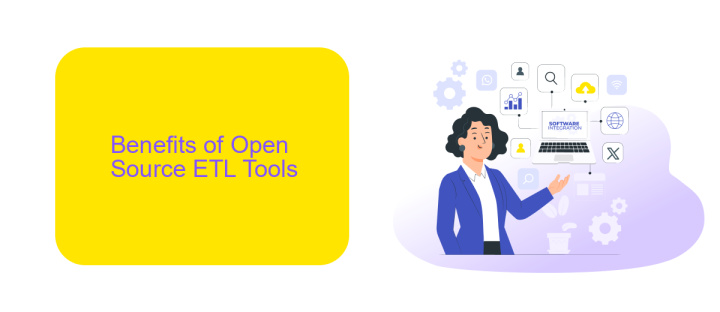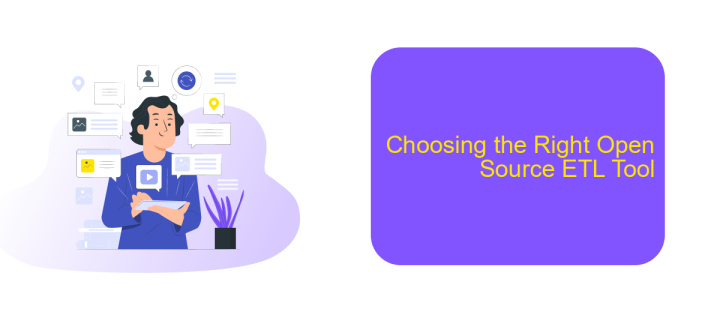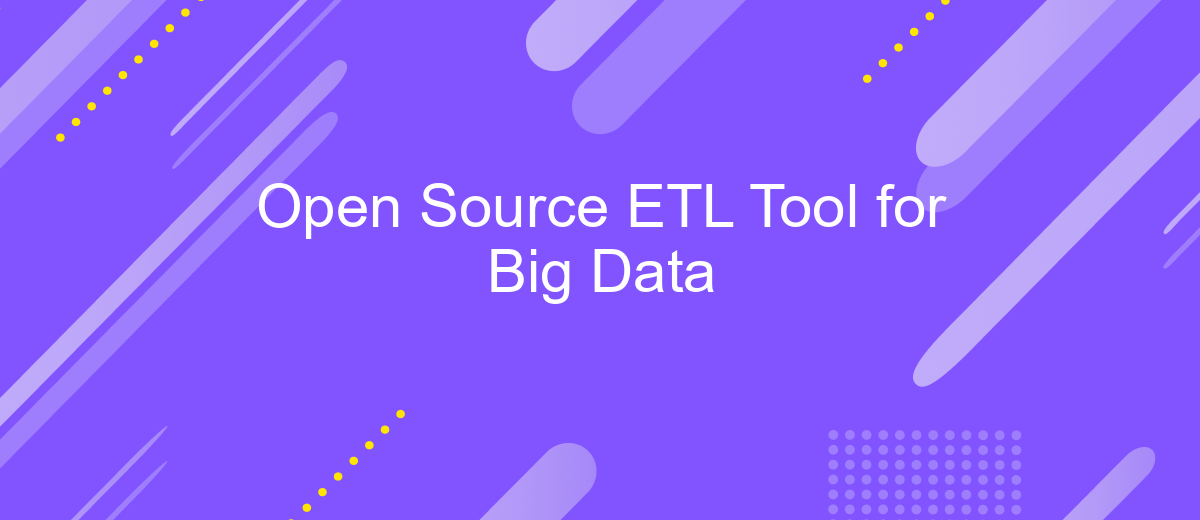Open Source ETL Tool for Big Data
In the era of big data, efficient data integration is crucial. Open source ETL (Extract, Transform, Load) tools offer a cost-effective and flexible solution for managing complex data workflows. These tools empower organizations to seamlessly extract data from diverse sources, transform it into valuable insights, and load it into data warehouses or analytics platforms, driving better decision-making and innovation.
Introduction
In the era of big data, efficient extraction, transformation, and loading (ETL) processes are crucial for managing and analyzing large volumes of information. Open source ETL tools have become increasingly popular due to their flexibility, cost-effectiveness, and community-driven improvements. These tools enable organizations to streamline data workflows and integrate diverse data sources seamlessly.
- Cost-effective solutions with no licensing fees
- Customizable to meet specific business needs
- Community support and regular updates
- Compatibility with various data sources and formats
One such tool that stands out is ApiX-Drive. This service simplifies the integration process by allowing users to connect different applications and automate data workflows without requiring extensive technical knowledge. By leveraging open source ETL tools like ApiX-Drive, businesses can enhance their data management capabilities, reduce operational costs, and focus on deriving actionable insights from their big data initiatives.
Benefits of Open Source ETL Tools

Open source ETL tools offer numerous benefits for managing big data. One of the primary advantages is cost-effectiveness. Unlike proprietary software, open source ETL tools are usually free to use, which significantly reduces the overall cost of data management. Additionally, these tools are highly customizable, allowing organizations to tailor them to their specific needs. The open source community continuously contributes to the improvement of these tools, ensuring they remain up-to-date with the latest technological advancements and security measures.
Another significant benefit is the flexibility and interoperability that open source ETL tools provide. They can easily integrate with a wide range of data sources and destinations, making them ideal for diverse and complex data environments. For instance, services like ApiX-Drive facilitate seamless integration between various applications and platforms, enhancing the efficiency of data workflows. Furthermore, open source ETL tools often come with extensive documentation and community support, making it easier for organizations to implement and troubleshoot these solutions without relying on vendor support.
Challenges of Open Source ETL Tools

Open Source ETL tools provide a cost-effective and flexible solution for managing big data workflows. However, they come with their own set of challenges that can impact their efficiency and reliability.
- Complexity: Setting up and configuring open source ETL tools often requires a high level of technical expertise, which can be a barrier for smaller teams.
- Maintenance: Regular updates and maintenance are crucial, and the lack of dedicated support can make this process cumbersome.
- Scalability: While open source tools are flexible, they may struggle to handle the scalability demands of rapidly growing data volumes.
- Integration: Integrating various data sources can be challenging. Services like ApiX-Drive can simplify this process by offering seamless integration capabilities.
- Security: Ensuring data security and compliance can be more complex without the robust security frameworks provided by proprietary solutions.
Despite these challenges, open source ETL tools remain a popular choice due to their flexibility and cost-effectiveness. By leveraging additional services like ApiX-Drive for integration, organizations can mitigate some of these challenges and enhance the overall efficiency of their ETL processes.
Choosing the Right Open Source ETL Tool

Choosing the right open source ETL tool for big data can be a daunting task, given the plethora of options available. The right tool should align with your specific needs, whether it's data transformation, scalability, or ease of integration with other systems.
First, consider the volume and variety of data you need to process. Tools like Apache NiFi and Talend are excellent for handling large datasets and offer robust data transformation capabilities. Additionally, assess the ease of use and community support, as these factors can significantly impact your team's productivity.
- Scalability: Ensure the tool can handle your current and future data volumes.
- Integration: Look for tools that easily integrate with your existing systems, such as ApiX-Drive for seamless API integrations.
- Community Support: A strong user community can provide valuable resources and troubleshooting assistance.
- Cost: While open source tools are generally free, consider any hidden costs such as training or additional software.
Ultimately, the best open source ETL tool for your big data needs will depend on a combination of these factors. Take the time to evaluate each option thoroughly to ensure it meets your specific requirements.
- Automate the work of an online store or landing
- Empower through integration
- Don't spend money on programmers and integrators
- Save time by automating routine tasks
Case Studies of Open Source ETL Tools
One notable case study involves a retail company that leveraged Apache Nifi, an open-source ETL tool, to streamline their data integration processes. The company faced challenges in aggregating data from various sources such as sales, inventory, and customer feedback. By implementing Apache Nifi, they managed to automate data flows, significantly reducing manual intervention and errors. The tool’s user-friendly interface and robust capabilities allowed the team to set up complex data pipelines efficiently, leading to more accurate and timely business insights.
Another compelling example is a healthcare organization that utilized Talend Open Studio for Big Data to enhance their data analytics capabilities. The organization needed to integrate and process vast amounts of patient data from multiple systems to improve patient care and operational efficiency. Talend's open-source ETL tool enabled seamless data integration and transformation, facilitating real-time analytics. Additionally, the organization used ApiX-Drive to automate integrations between Talend and other cloud-based services, further optimizing their data workflows and ensuring compliance with healthcare regulations.
FAQ
What is an Open Source ETL Tool for Big Data?
What are the advantages of using Open Source ETL tools for Big Data?
How do Open Source ETL tools handle scalability?
What are some popular Open Source ETL tools for Big Data?
How can I automate and integrate an Open Source ETL tool into my existing workflow?
Time is the most valuable resource in today's business realities. By eliminating the routine from work processes, you will get more opportunities to implement the most daring plans and ideas. Choose – you can continue to waste time, money and nerves on inefficient solutions, or you can use ApiX-Drive, automating work processes and achieving results with minimal investment of money, effort and human resources.


